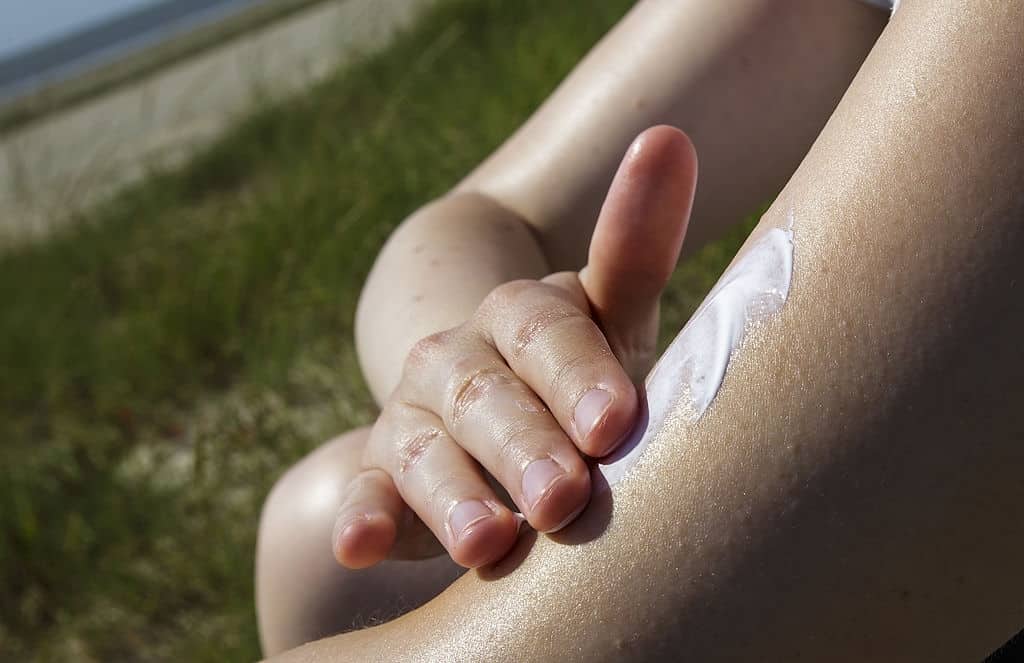A Cancer-Causing Chemical Has Been Found In A Sunscreen: What It Means For You
Nikki Attkisson | Last Updated : July 19, 2021We all reach for sunscreen during the summer heat. Check to see if it is part of Neutrogena or Aveeno voluntary recall before you apply that sunscreen product. Recently, several sunscreens were recalled from the market after testing found benzene, a cancer-causing chemical. Leukemia and other illnesses related to blood disorders are at increased risk due to exposure to benzene, according to the National Cancer Institute.
A Cancer-Causing Chemical Has Been Found In A Sunscreen: What It Means For You
Two of CVS Health’s after-sun care products were also withdrawn for similar reasons. The toxin is still present in sunscreen and after-sun cosmetics that are still on the market (see list below). Experts stress that sunscreen use is crucial to protecting the skin from the aging and cancerous effects of the sun. The vast majority of sunscreens tested were free of benzene.

Despite this, dermatologist Ranella Hirsch points out that it is not a reason to stop using sunblock, which is known to prevent skin cancer. An Instagram post by a past president of the American Society of Cosmetic Dermatology and Aesthetic Surgery described doing so as being equivalent to hearing that a car model has been recalled and then committing to never drive again.
Why did benzene-contaminated brand-name sunscreens appear on the market? Is there any reason for concern? How many sunscreen products were recalled?
Johnson & Johnson voluntarily recalled four lots, or batches, of Neutrogena spray sunscreens described below and one Aveeno spray this week due to an abundance of caution.
In a statement, J&J said benzene was found in some of the impacted aerosol sunscreen finished products, despite not containing it in any of our sunscreen products. These products should not be used by consumers, and they should be disposed of appropriately. A day after the Johnson & Johnson recall was announced, CVS Health discontinued selling the Aloe Vera and Aloe Vera Spray.
In a statement to CNN, CVS Health’s corporate communications senior director Mike DeAngelis said, “CVS Health is participating in the recall by Johnson & Johnson.” Neither CVS products were recalled, but as a precaution, the company has stopped selling its two products, which contain benzene. The CVS Health supplier is being contacted to take the appropriate measures, he said. CVS continues to sell one of the benzene-contaminated products in its benzene-contaminated product list, After-sun Aloe Vera Moisturizing Gel, DeAngelis said.
Why was sunscreen recalled?
As a result of independent testing of samples from 69 brands of sprays, lotions, gels, and creams that protect or care for skin after exposure to the sun, 69 brands were voluntarily recalled and sales paused. One hundred and eighty-seven samples contained benzene.
David Light, who founded and is CEO of Valisure, the lab that did the testing, said that contamination occurred in specific batches, not one particular brand. Being both a scientist and a consumer, finding benzene in sunscreen was unexpected. He uses sunscreen quite a bit himself; his five children all use it, so the discovery of such high levels was concerning for him.
The company filed a citizen petition with the US Food and Drug Administration asking for action after revealing that various samples contained benzene significantly exceeding the conditionally restricted limit.
As of now, the FDA has not recalled any products with a defect rate of 0.1 per million or higher, Light told CNN. That risk is not worth taking, and the company just wanted it to be cleaned up.
The two CVS brands, After-sun Aloe Vera Soothing Spray and Beach Defense — including three Neutrogena spray sunscreens recalled by the company– contained benzene at levels of 2 parts per million or more, Valisure investigators found. Neutrogena’s Cool Dry Sport spray and CVS Health’s After-sun Aloe Vera Moisturizing Gel also contained Benzene to varying degrees.
The company did not test Aveeno’s Protect + Refresh aerosol, the fifth sunscreen recalled by J&J. Johnson & Johnson did not acquire any Aveeno sunscreen sprays, but internal testing by the company points to our concern about benzene in lotions and sprays, Light said. It was not expected that this level of daily benzene exposure in these sunscreen products would have any adverse health effects, according to J&J.
Read Also: One Shot Keto Reviews
With over 15 years as a practicing journalist, Nikki Attkisson found herself at Powdersville Post now after working at several other publications. She is an award-winning journalist with an entrepreneurial spirit and worked as a journalist covering technology, innovation, environmental issues, politics, health etc. Nikki Attkisson has also worked on product development, content strategy, and editorial management for numerous media companies. She began her career at local news stations and worked as a reporter in national newspapers.